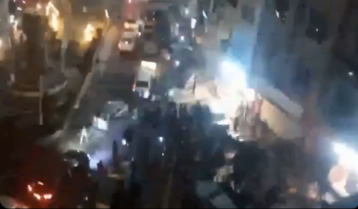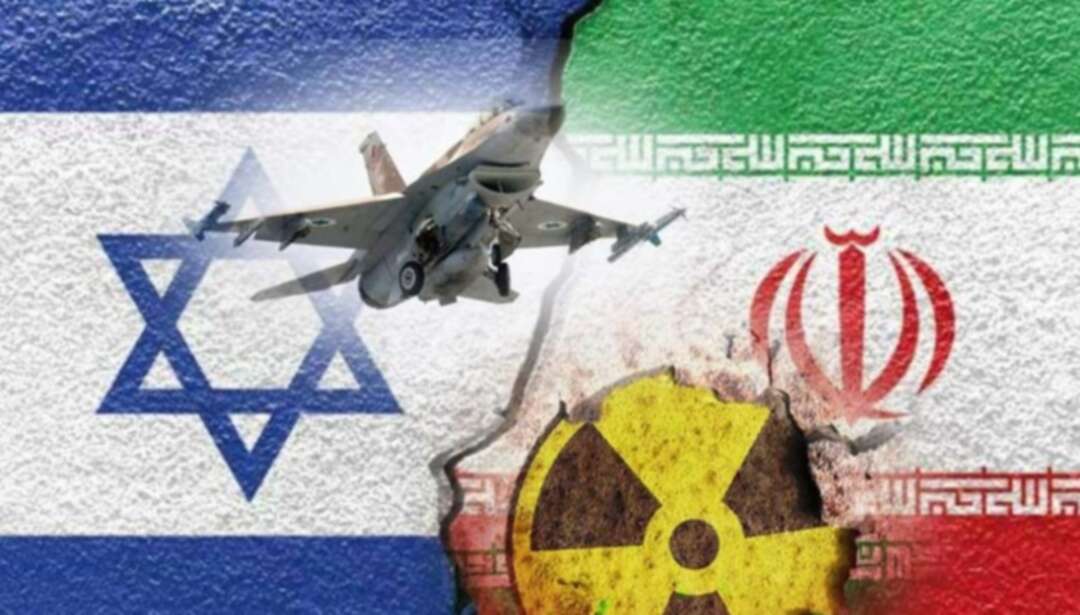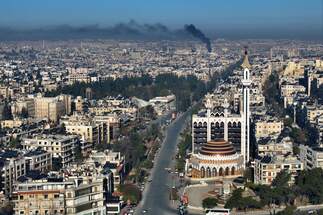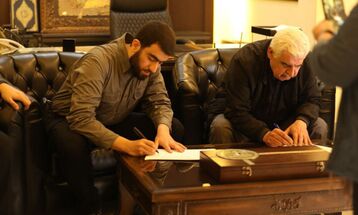-
US denounces Russia for ‘dangerous and irresponsible’ space missile test
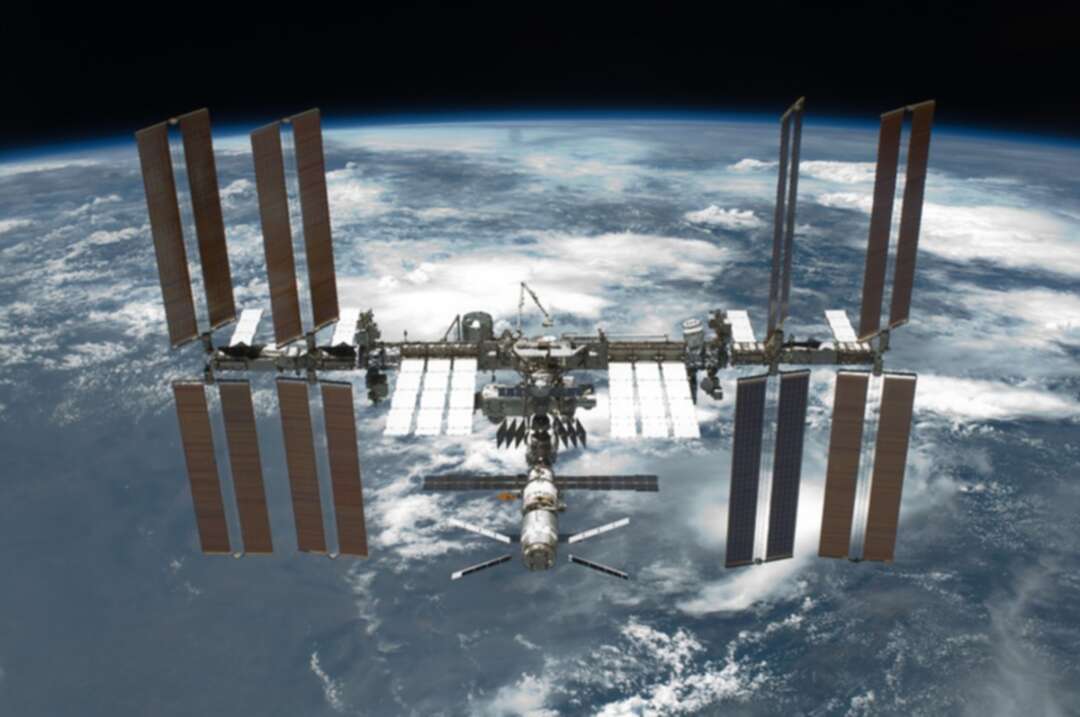
Washington wasn’t informed in advance about the test, only the fourth ever to hit a spacecraft from the ground, and will talk to allies about how to respond, said officials.
The move reignites concerns about the growing space arms race, encompassing everything from the development of satellites capable of shunting others out of orbit to laser weapons.
Secretary of State Anthony Blinken in a statement said: “The Russian Federation recklessly conducted a destructive test of a direct-ascent anti-satellite missile against one of its own satellites."
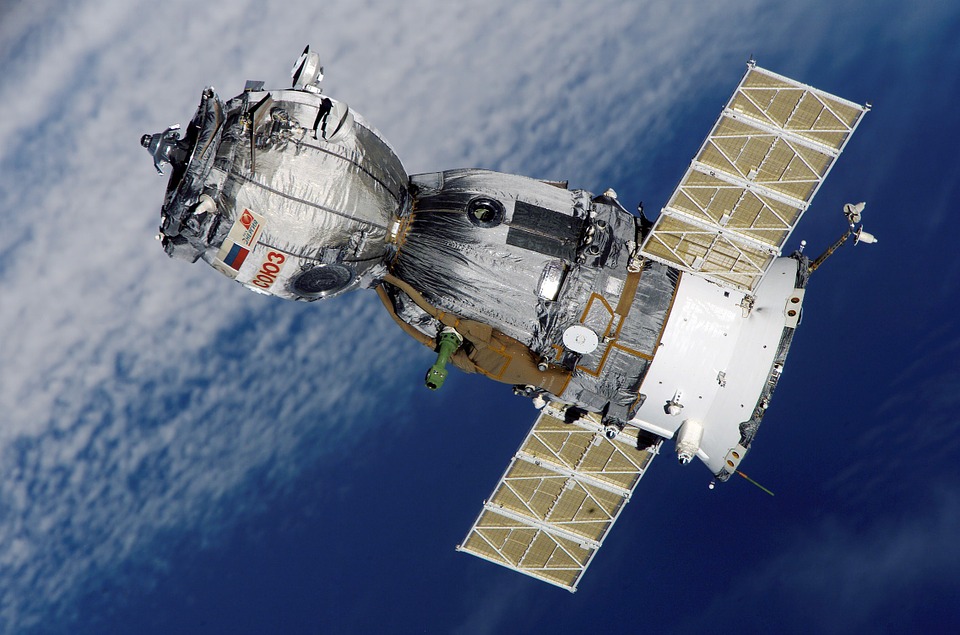 Space craft-Satellite/Pixabay
Space craft-Satellite/PixabayHe added that the “dangerous and irresponsible test” had generated over 1,500 pieces of trackable orbital debris and will likely create hundreds of thousands of pieces of smaller orbital debris.
Read more: UN Security Council praises Iraqis for commitment to democracy and peaceful election
The crew aboard the orbital outpost — currently four Americans, a German and two Russians — were awakened and first asked to close the station’s hatches, then take shelter in their return ships, the standard “safe haven” alarm procedure in the event of an emergency that might force evacuation.
They made their way to the Dragon and Soyuz spacecraft at 2:00 am Eastern Time (0700 GMT), and remained there for about two hours, NASA said. The ISS continues to pass near or through the cloud every 90 minutes.
He added, in his strongly-worded remarks, Blinken said the danger was far from over, and the debris would continue to threaten satellites and activities on the ISS. The United States was discussing its response with partners.
NASA administrator Bill Nelson added in a statement he was “outraged by this irresponsible and destabilizing action.”
He said: “With its long and storied history in human spaceflight, it is unthinkable that Russia would endanger not only the American and international partner astronauts on the ISS, but also their own cosmonauts” as well as Chinese “taikonauts” aboard China’s space station.
Read more: COP26 President says China and India must explain themselves to climate-vulnerable nations
The target of the missile was Cosmos 1408, a 1982 Soviet signals intelligence satellite that has been defunct for several decades, according to space industry analysis company Seradata.
Anti-satellite weapons (ASATs) are high-tech missiles possessed by few nations.
India was the last to carry out a test on a target in 2019, creating hundreds of pieces of “space junk” strongly criticized by other powers, including the United States.
The United States shot down a satellite in 2008 in response to China demonstrating a similar knockout in 2007.
Jonathan McDowell, a Harvard astrophysicist, told AFP: “The feeling among people in the space industry is that we have way too much debris up there already — to deliberately generate more is just inexcusable.”
He said, the first objects from the debris cloud should start to enter the atmosphere within a few months, but it could be up to 10 years before it clears up entirely.
That could jeopardize what is an increasingly crowded region of space known as “low Earth orbit.”
There are currently more than 4,500 satellites whizzing around the planet, according to the Union of Concerned Scientists, with companies like SpaceX planning to launch up to tens of thousands more, as the private space industry experiences rapid growth.
Russia is increasingly flexing its muscles in space as it seeks to reassert global influence under the leadership of Vladimir Putin.
Last year, London and Washington accused Moscow of testing a “nesting doll” satellite that opened up and released a smaller craft to stalk an American satellite.
Read more: City of Merritt in Canada forced to evacuate due to flooding
China meanwhile is developing a weapon known as Shijian-17, with a robot arm capable of grappling space vessels.
“Both China and Russia are increasingly building space into their military capabilities,” Director of National Intelligence Avril Haines said at a space seminar in Washington last week.
He added: “They have directed-energy weapons that allow them to essentially blind sensors on various satellites."
Despite these tensions, the United States and Russia have maintained strong space ties since the end of the Cold War, cooperating closely on the ISS, which they built together.
Source: arabnews
You May Also Like
Popular Posts
Caricature
BENEFIT AGM approves 10%...
- March 27, 2025
BENEFIT, the Kingdom’s innovator and leading company in Fintech and electronic financial transactions service, held its Annual General Meeting (AGM) at the company’s headquarters in the Seef District.
During the meeting, shareholders approved all items listed on the agenda, including the ratification of the minutes of the previous AGM held on 26 March 2024. The session reviewed and approved the Board’s Annual Report on the company’s activities and financial performance for the fiscal year ended 31 December 2024, and the shareholders expressed their satisfaction with the company’s operational and financial results during the reporting period.
The meeting also reviewed the Independent External Auditor’s Report on the company’s consolidated financial statements for the year ended 31 December 2024. Subsequently, the shareholders approved the audited financial statements for the fiscal year. Based on the Board’s recommendation, the shareholders approved the distribution of a cash dividend equivalent to 10% of the paid-up share capital.
Furthermore, the shareholders endorsed the allocation of a total amount of BD 172,500 as remuneration to the members of the Board for the year ended 31 December 2024, subject to prior clearance by related authorities.
The extension of the current composition of the Board was approved, which includes ten members and one CBB observer, for a further six-month term, expiring in September 2025, pending no objection from the CBB.
The meeting reviewed and approved the Corporate Governance Report for 2024, which affirmed the company’s full compliance with the corporate governance directives issued by the CBB and other applicable regulatory frameworks. The AGM absolved the Board Members of liability for any of their actions during the year ending on 31st December 2024, in accordance with the Commercial Companies Law.
In alignment with regulatory requirements, the session approved the reappointment of Ernst & Young (EY) as the company’s External Auditors for the fiscal year 2025, covering both the parent company and its subsidiaries—Sinnad and Bahrain FinTech Bay. The Board was authorised to determine the external auditors’ professional fees, subject to approval from the CBB, and the meeting concluded with a discussion of any additional issues as per Article (207) of the Commercial Companies Law.
Speaking on the company’s performance, Mr. Mohamed Al Bastaki, Chairman BENEFIT , stated: “In terms of the financial results for 2024, I am pleased to say that the year gone by has also been proved to be a success in delivering tangible results. Growth rate for 2024 was 19 per cent. Revenue for the year was BD 17 M (US$ 45.3 Million) and net profit was 2 Million ($ 5.3 Million).
Mr. Al Bastaki also announced that the Board had formally adopted a new three-year strategic roadmap to commence in 2025. The strategy encompasses a phased international expansion, optimisation of internal operations, enhanced revenue diversification, long-term sustainability initiatives, and the advancement of innovation and digital transformation initiatives across all service lines.
“I extend my sincere appreciation to the CBB for its continued support of BENEFIT and its pivotal role in fostering a stable and progressive regulatory environment for the Kingdom’s banking and financial sector—an environment that has significantly reinforced Bahrain’s standing as a leading financial hub in the region,” said Mr. Al Bastaki. “I would also like to thank our partner banks and valued customers for their trust, and our shareholders for their ongoing encouragement. The achievements of 2024 set a strong precedent, and I am confident they will serve as a foundation for yet another successful and impactful year ahead.”
Chief Executive of BENEFIT; Mr. Abdulwahed AlJanahi commented, “The year 2024 represented another pivotal chapter in BENEFIT ’s evolution. We achieved substantial progress in advancing our digital strategy across multiple sectors, while reinforcing our long-term commitment to the development of Bahrain’s financial services and payments landscape. Throughout the year, we remained firmly aligned with our objective of delivering measurable value to our shareholders, strategic partners, and customers. At the same time, we continued to play an active role in enabling Bahrain’s digital economy by introducing innovative solutions and service enhancements that directly address market needs and future opportunities.”
Mr. AlJanahi affirmed that BENEFIT has successfully developed a robust and well-integrated payment network that connects individuals and businesses across Bahrain, accelerating the adoption of emerging technologies in the banking and financial services sector and reinforcing Bahrain’s position as a growing fintech hub, and added, “Our achievements of the past year reflect a long-term vision to establish a resilient electronic payment infrastructure that supports the Kingdom’s digital economy. Key developments in 2024 included the implementation of central authentication for open banking via BENEFIT Pay”
Mr. AlJanahi concluded by thanking the Board for its strategic direction, the company’s staff for their continued dedication, and the Central Bank of Bahrain, member banks, and shareholders for their valuable partnership and confidence in the company’s long-term vision.
opinion
Report
ads
Newsletter
Subscribe to our mailing list to get the new updates!


